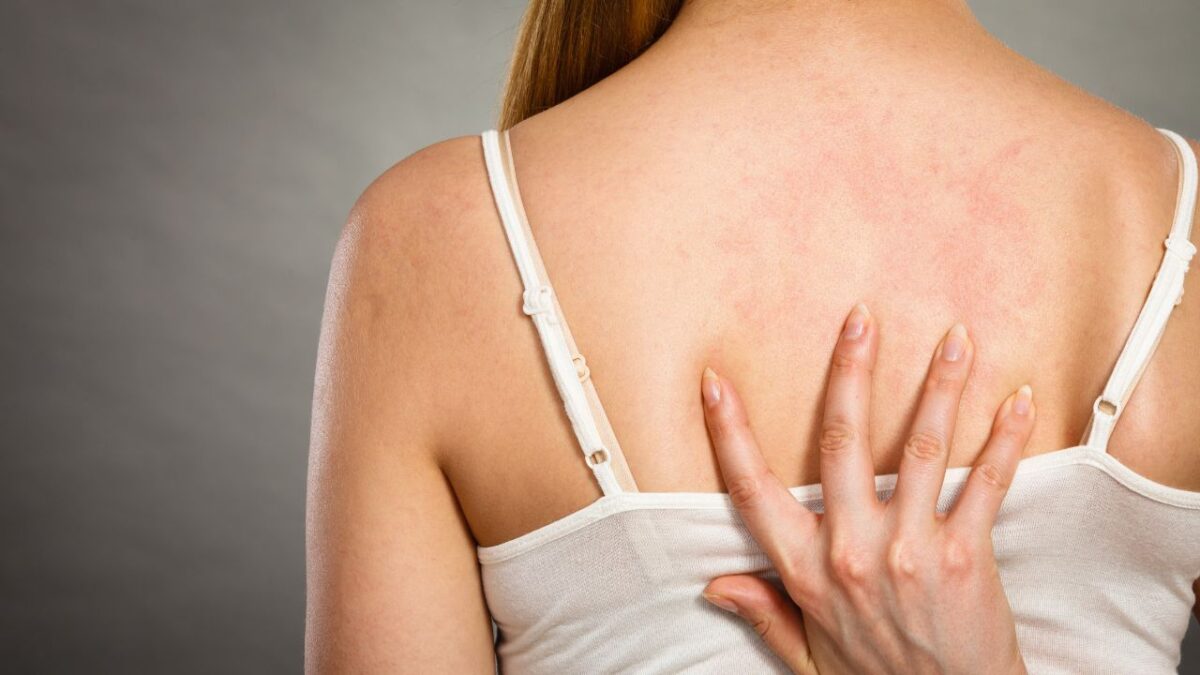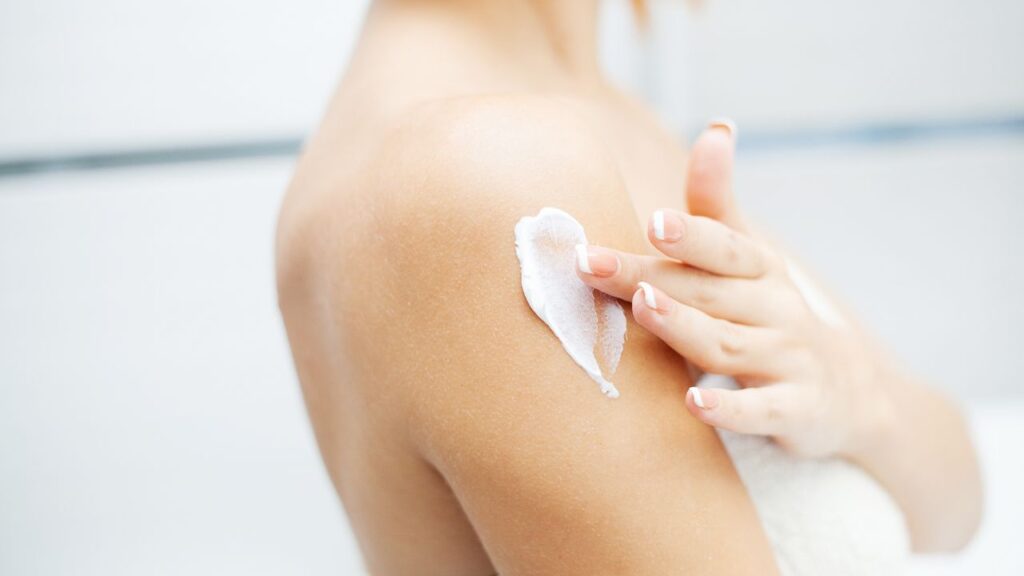Say Goodbye to Itchy Skin! Top 10 Revolutionary Tricks to Beat Menopausal Itch

When we talk about itchiness during menopause, it’s like our bodies are throwing us a curveball. The main culprit? Hormonal changes. As we hit menopause, our estrogen levels take a nosedive. This hormonal shift doesn’t just give us hot flashes and mood swings; it also dries out our skin. Estrogen is like a natural moisturizer, and with less of it around, our skin loses some of its ability to retain moisture, leading to dryness and itching.
But that’s not the whole story. Our skin naturally gets thinner and less elastic as we age dur to a decrease in collagen production. Combine this with the hormonal changes, and you’ve got a recipe for itchy skin. Also, don’t forget about lifestyle factors. Things like hot baths, certain soaps and detergents, and even the clothes we wear can irritate our already sensitive skin. Stress, which can often accompany menopause, can also make itching worse. It’s like a feedback loop – the more we stress, the itchier we get, and the itchier we get, the more we stress.
And here’s another thing – underlying health conditions can sometimes manifest as itchiness during menopause. Conditions like diabetes, thyroid problems, or even kidney issues can make their presence known through our skin. It’s like our body’s way of waving a red flag, saying, “Hey, pay attention to me!”
How does itchiness affect women in menopause?
Itchiness during menopause can affect women in a variety of ways, encompassing both physical and emotional aspects of their lives. The most direct impact is the constant discomfort from the itchiness itself, which can occur anywhere on the body but is often most noticeable on the arms, legs, back, and chest. This physical discomfort is often compounded by skin changes, as hormonal fluctuations, particularly the decrease in estrogen, can make the skin thinner, drier, and less elastic.
The emotional and psychological impact of this symptom can be profound. Persistent itchiness can lead to increased stress and anxiety. It’s like a nagging reminder of the bodily changes occurring during menopause. For some women, visible skin changes or the act of scratching in public can lead to feelings of embarrassment or self-consciousness. This discomfort can be distracting, impacting concentration and the ability to carry out daily activities or enjoy hobbies.
Socially and in terms of lifestyle, the effects can be significant. The discomfort or self-consciousness about their skin might lead some women to withdraw from social activities. There could also be changes in clothing choices, as women might start choosing clothes based on comfort to avoid irritation, rather than personal style preferences.
Furthermore, dealing with itchiness can affect overall health and well-being. Excessive scratching can lead to damaged skin, increasing the risk of infections. Prolonged distress due to itchiness can contribute to mood changes or exacerbate mental health issues like depression. In terms of intimate relationships, discomfort from itchiness, along with other menopausal symptoms, can lead to a decrease in libido or sexual discomfort, potentially impacting these relationships.
There is also a financial dimension to consider. The expenses related to treatments, such as moisturizers, prescription creams, or alternative therapies, can add up, creating a financial burden. Additionally, the need to manage itchiness and its related discomfort can be challenging in a work environment, affecting concentration and productivity.
Finally, itchiness during menopause can interact with other menopausal symptoms. It can exacerbate symptoms like hot flashes and night sweats, as skin irritation can increase the feeling of heat. In some cases, it might even influence a woman’s decision about using Hormone Replacement Therapy (HRT), as she might fear it could worsen her skin symptoms, even though it could potentially help with other menopausal symptoms.
What can you do to manage itchiness during menopause?
Battling itchiness during menopause doesn’t have to be a solo journey. With these top ten tricks, you can take control and bring comfort back to your skin.
1. Moisturize Like It’s Your New Hobby

Moisturizing is your first line of defense against itchiness during menopause. Look for creams rich in hyaluronic acid, ceramides, or shea butter. And here’s a pro tip: moisturize right after your shower to lock in that extra bit of moisture.
2. Turn Down the Shower Heat
Hot water can strip your skin of its natural oils, making dryness and itchiness worse. So, let’s turn down the heat a bit. Opt for warm, not hot showers, and try to keep them short. Your skin will thank you!
3. Omega-3s to the Rescue
Your diet can be a game-changer. Foods rich in Omega-3 fatty acids, like salmon, flaxseeds, and walnuts, are fantastic for skin health. They help in keeping your skin hydrated and less itchy.
4. Gentle Skincare Products Only
It’s time to be picky with your skincare products. Go for gentle, fragrance-free soaps and body washes. Your skin is sensitive during menopause, and harsh chemicals or fragrances are definitely not friends with it.
5. Stay Hydrated
Drinking plenty of water isn’t just good for your overall health; it’s crucial for your skin too. Keeping hydrated helps in maintaining skin moisture and reducing itchiness during menopause.
6. Dress Smartly
Your wardrobe choices can impact your skin. Choose loose, breathable fabrics like cotton. Tight, synthetic fabrics can irritate your skin and make the itching worse.
7. Cool It Down
Keep your living space cool, especially your bedroom. Lower temperatures can soothe itchy skin and prevent overheating, which often aggravates the itch.
8. Stress Less
Easier said than done, but reducing stress can significantly alleviate itch
iness during menopause. Stress can trigger and exacerbate skin irritation. Try yoga, meditation, or any relaxing hobby that calms your mind. Remember, a relaxed mind often leads to more comfortable skin.
9. Humidify Your Living Space
If you live in a dry climate or use air conditioning or heating frequently, a humidifier can be a skin-saver. It adds moisture back into the air, which helps in keeping your skin hydrated and less itchy.
10. Consult with a Dermatologist
If all else fails, or if you’re concerned about the severity of your skin’s condition, it’s always wise to consult with a dermatologist. They can provide tailored advice and treatment options that are specific to your skin’s needs.
Remember, your menopause journey is unique, and finding what works best for you is key. So, let’s embrace this new phase of life with comfort, confidence, and itch-free skin!
I hope you found these tips helpful. If you’ve tried any of these tricks or have others to share, I’d love to hear about them in the comments below. Let’s keep supporting each other on this journey with shared experiences and tips. Here’s to happy, healthy skin during menopause and beyond! 🌟💕
